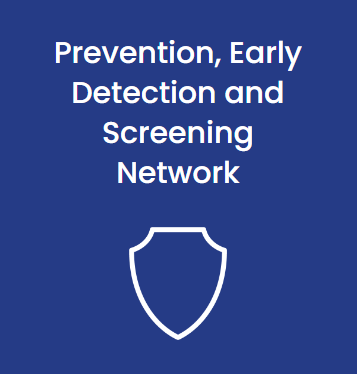Open Letter on Screening to EU and National Level Decision-Makers
26 October 2022
This open letter has been distributed to representatives of EU Member State governments, officials at the European Commission, Members of the European Parliament, and representatives from national legislatures with a core interest in cancer policy.
Key recommendations of the letter:
- Protect the EU council recommendations on cancer screening;
- Preserve the integrity of the eu’s scientific advice mechanism;
- Restore transparency and accountability to the decision-making process.
For more information on the succsessful campaign to expand cancer screening goals in the EU, plese read our Screening campaign article.
Dear representatives, Dear officials,
We write to you as conveners and facilitators of the European cancer community to request your urgent attention to recent developments that we understand have taken place in respect to the approving of new EU Council Recommendations on Cancer Screening. We recommend urgent action to protect the strength of the European Commission’s September 2022 proposals for Council Recommendations on Cancer Screening, to preserve the integrity of the EU’s Scientific Advice Mechanism, and to restore transparency and accountability to the decision-making process. A proposal on this is made below.
A thorough and scientific process was followed to create the September 2022 proposals for update
In developing its September 2022 proposals for update of the European Council Recommendations on cancer screening, the European Commission conducted more than 18 months of formal process, including a scientific call for evidence, and the formal engagement of the European Commission Scientific Advice Mechanism.
The EU’s Chief Scientific Advisors published their advice in March 2022. They recommended updating advice to Member States for tumour types presently recommended for screening across Europe: breast, colorectal and cervical cancer. This included advice to amend the recommended age ranges of breast cancer screening in line with latest evidence. The Chief Scientific Advisors also advised the inclusion of lung, prostate and gastric cancer within the scope of the EU Council Recommendations. Several meetings of Member State representatives then took place from March through to September, enabling the European Commission to publish a proposal in September 2022. While many unneeded caveats had been inserted to the September 2022 text, we remained broadly satisfied that the advice from the Chief Scientific Advisors was largely accepted.
Late interventions to insert excessive caution and reduced ambition
However, following a closed meeting of Member State representatives on Monday 24 October we understand that significant rewriting of the Commission’s proposal has taken place to:
- Undermine and contradict advice provided by the EU’s Group of Chief Scientific Advisors, particularly with regards to the addition of new cancer screening programmes and areas for update in respect to tumour types presently covered in the 2003 EU Council Recommendations;
- Delete from the text the Beating Cancer Plan targets on screening uptake;
- Insert whole new sections stating every potential and historic cited risk of cancer screening;
- Impose specific criteria each EU member state should use in making decisions on cancer screening,
- Insert exaggerated emphasis on national prerogatives for countries to exempt themselves of the recommendations;
- Dilution of advice on meeting the psychological needs of those diagnosed with cancer as a result of screening; and,
- Weakening of sections relating to the need for fit for purpose systems for recording and publishing information on screening performance.
We believe this undermining of the Commission proposals represents a capture of the EU recommendation process by an unrepresentative cohort of cancer screening sceptics. It poses the real consequence of weakening momentum for improvement in cancer screening across Europe, frustrating efforts to combat inequalities in this area, and ultimately jeopardising the realisation of the targets set by the EU beating Cancer Plan.
Furthermore, it is a highly concerning challenge to the very basis of EU decision-making on matters of scientific interest which should be underpinned by a respect for the EU scientific advice mechanism.
We recommend that transparency and accountability be restored to the decision-making process.
We recommend urgent facilitated meeting and exchange between the Member State representatives proposing changes to the Commission text and the European oncology professional and cancer patient community.
The European Cancer Organisation makes itself available to support this to take place without delay, and before final decisions are taken.
Such rapidly made weakening of the Commission’s proposal should not be made behind closed doors by unnamed parties in challenge to Advice provided by the EU’s Group of Chief Scientific Advisors.
We will not create a better future for earlier detection of cancer in Europe from the embrace of economically short-termist and outdated conceptions about cancer screening.
Andreas Charalambous, President of the European Cancer Organisation
Related Focused Topic Network:


